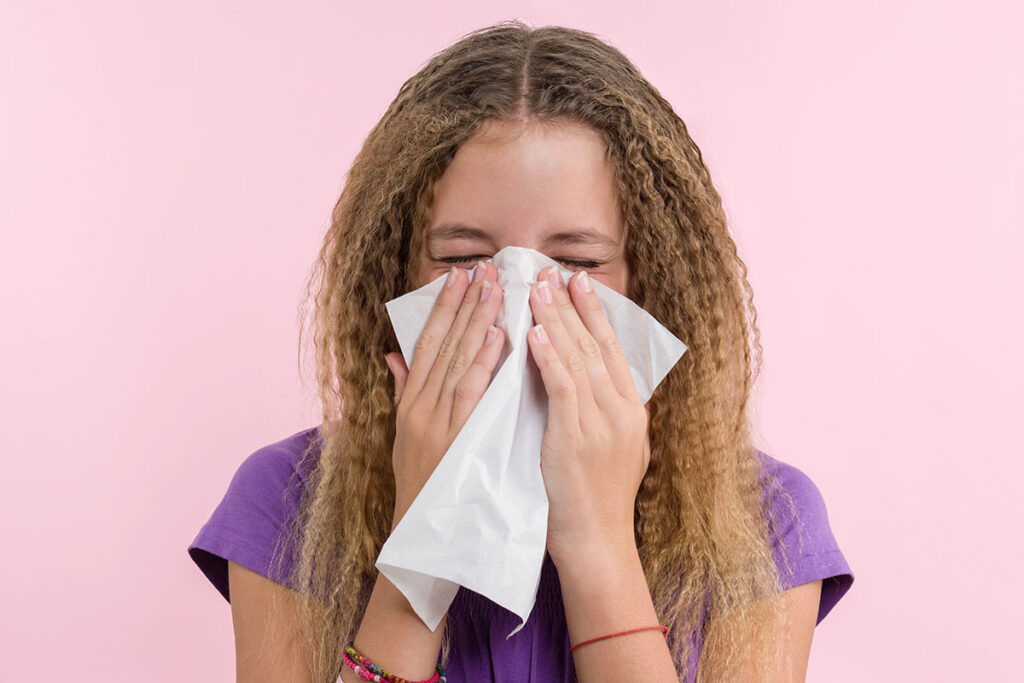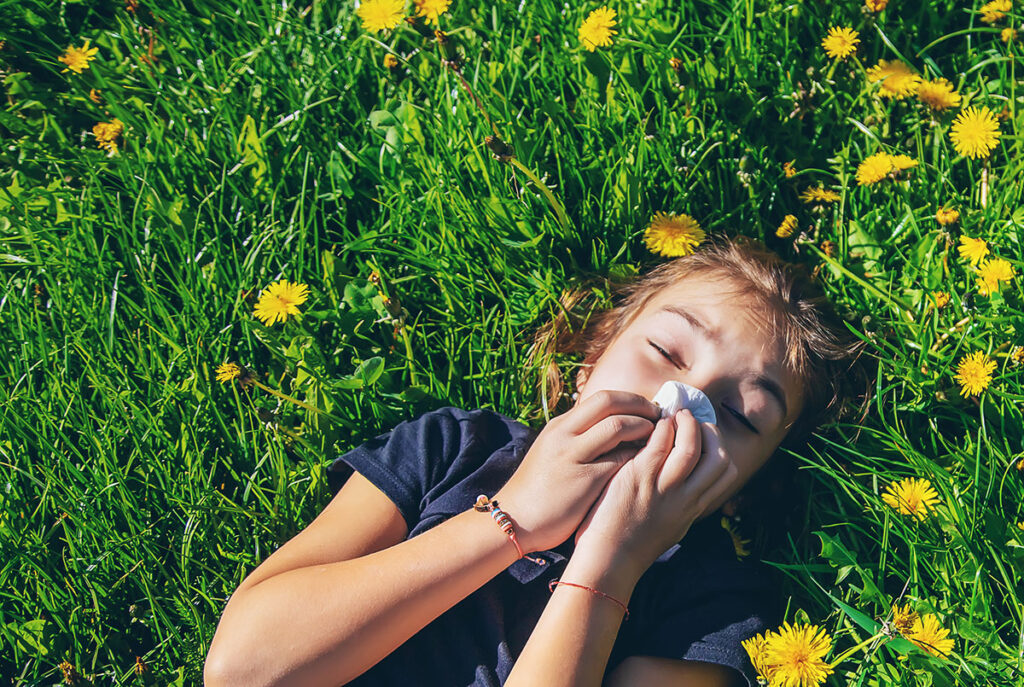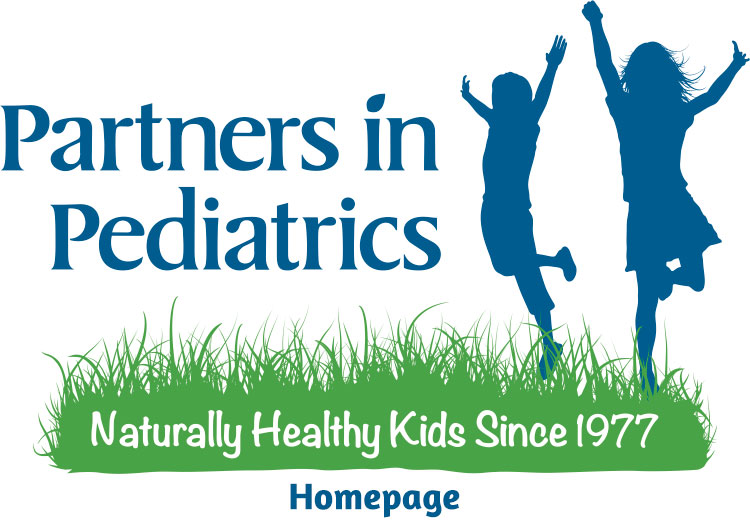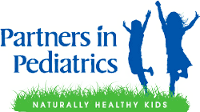2022 allergy season has been pretty bad for many of us in the Metro Denver area. Probably everyone has experienced the wide variety of allergy symptoms–the swelling, redness, runny nose, itching, scratchy throat, plugged ears, sneezing and watery, red eyes. Other symptoms may include a cough, wheezing, throat clearing or sore throat, exhaustion, sleep and feeding disruptions, nosebleeds, circles under the eyes, and mouth-breathing. Unfortunately, infants and children are not immune from these symptoms. In fact, allergies are a common health issue in children as well as adults, and can be an important part of pediatric care in Colorado (or anywhere). This year, many have also wondered: “Is it allergies or is it COVID (or some other cold-type virus)?” Allergy symptoms have been particularly rough this year so far due to high winds and a dry climate. We hope you and your family haven’t been hit too hard with allergy symptoms! But if you have, here is a guide to home remedies for treating your child’s allergies.

What Exactly Are Allergies?
It is not necessary to go to medical school to attain a basic understanding of allergies. Allergies are an allergic response to various triggers, called allergens, which are small molecules that our bodies recognize as foreign. There are different categories of allergens: i) seasonal, such as trees, weeds, pollen and grasses (allergic reactions from seasonal allergens are called hay fever), and ii) perennial, which are non-seasonal allergens, such as animal dander, dust, mold and feathers. Allergies are triggered when an allergen enters through the mouth, nose or eyes. Once the allergen has settled in, it irritates the mucous membranes lining those areas, creating inflammation and stimulating the release of histamine, with the unfortunate results noted above.
Food allergies may also trigger hay fever-like symptoms. There is also a condition known as environmental rhinitis, involving similar symptoms but triggered by non-allergens, such as tobacco smoke, chemical fumes, dry air, air pollution or smoke.
What To Expect When Your Child Has Allergies
As your holistic pediatrician and your medical home, we want you to know what to expect when your child has allergies. The expected course of your child’s allergies will depend on factors such as what triggering allergen or irritant is involved, the age and health of the child affected, whether the child has other allergies, and whether your child has other accompanying symptoms. Symptoms from seasonal (hay fever) triggers will usually lessen and eventually disappear as the seasons change. Perennial allergies and environmental rhinitis tend to wax and wane as the triggers come and go in the environment to which your child is exposed.
Although hay fever rarely produces secondary complications affecting your child’s health, secondary bacterial infections (such as ear and sinus infections) may possibly develop because of the considerable amount of mucous produced. Children with asthma may also experience an increase in asthma symptoms when exposed to allergens.
Prevention and Home Care for Allergies
No one likes to see their child suffer! As patients in our pediatric practice, we are providing you with some home care recommendations (below), under conventional medicine, for treating and perhaps even preventing allergies. (Part two of this blog, which will be posted next month, will address holistic approaches, under complementary and alternative medicine, to deal with your child’s allergies.) Please feel free to select the health care recommendations that make the most sense for your child’s situation:
- Triggers. Identify triggers (foods, animal dander, plants, flowers, cigarette smoke, etc) and eliminate or avoid them, if possible. To help avoid exposure to pollens and outdoor molds, stay inside with windows closed during problematic seasons, and be aware that pollen counts are usually higher in the afternoon.
- Humidification. Run a humidifier or vaporizer in your child’s bedroom and/or play area as much as possible. Be sure the humidifier is properly cleaned, taking note of whether the use of the humidifier increases your child’s symptoms.
- Hydration. Encourage your child to drink more clear fluids, which will help thin out the mucous. The following guidelines are a good rule of thumb for water intake: for 2-5 year olds, 12-18 ounces per day; for 5-12 year olds, 18-24 ounces per day; and for 13-18 year olds, 32-48 ounces per day
- Nasal Saline Rinse. Use saline nose drops made up of 1/2 teaspoon salt and 1 cup water, or use commercially available saline drops (such as Ocean). Put 2 drops in each nostril and leave for several minutes before having your child blow their nose. Repeat, as needed, 3-4 times a day. Mucous in younger children can be suctioned away with a bulb syringe, but don’t suction too frequently or it could cause the congestion to worsen.
- Diet. Eliminate milk and dairy products when your child is significantly congested. Citrus can also cause increased mucus production, so be careful.
- Environment. Keep the house, and particularly your child’s bedroom, as clean as possible, with careful attention being given to bedding and stuffed animals. If carpets can’t be replaced by vinyl, tile or wood flooring, vacuum carpets once or twice a week and use a HEPA filter or double bag in the vacuum.
- Pollens. If your child’s allergies are triggered by outdoor pollens, use air conditioning, rather than evaporative cooling. The use of air filtration systems or HEPA room air purifiers can be helpful, as can regular duct cleaning. In order to remove pollens from hair and skin, have your child shower after coming in from outdoor play on high pollen days.
- Over the Counter Medications. Several over the counter (OTC) medications can be helpful in addressing allergies:
(A) Antihistamines can be of great value. Be sure to follow the packaging’s dosing instructions carefully. We do not generally recommend the use of OTC decongestants or decongestants/antihistamine combinations because they tend to thicken the mucous and prevent drainage, setting the stage for a possible secondary bacterial infection.
(B) Chromolyn sodium (such as NasalCrom) can significantly relieve allergy symptoms. For dosing, be sure to follow the package labeling accurately.
(C) If nasal congestion is making it significantly difficult for your child to sleep or eat and saline nose drops haven’t helped, you may consider using phenylephrine nose drops in a strength of 1/8% or 1/4%. You may administer 1 to 2 drops in each nostril, as needed, for a maximum of 3 doses per day, not to exceed 7 days. Use for longer than 7 days can result in nasal membrane dependency and should be avoided.

Most, but not all, children will respond well to these home treatments, as well as the integrated therapies to be addressed in part 2 of this blog. As your integrative pediatrician and medical home, however, we ask you to call us within 24 hours if:
- hay fever symptoms are worsening,
- hay fever symptoms are not better after 3 days of the mentioned treatments,
- your child develops wheezing,
- your child is unable to sleep restfully or symptoms are disrupting your child’s daily routine,
- hives are present,
- your child has a significant sore throat, especially if there has been a strep exposure, or
- your child’s cough takes a turn for the worse, especially if accompanied by a fever.
Very importantly, you should call 911 if your child has a serious reaction characterized by wheezing, increased work of breathing, color changes, swelling of the throat and extreme agitation! This could be an anaphylactic reaction, which is a more serious condition than allergies.
If your child’s allergy symptoms persist despite home care or other treatments, we, as your integrative medicine Denver pediatrician, may prescribe medications or recommend an evaluation by a pediatric allergist to more precisely determine the exact triggers involved in the problem.
If you have any questions or if you believe your child may need some care, please get in touch with us to ensure that your children get the best integrative pediatric care in Metro Denver. Stay tuned for part 2 of our 2022 allergies remedies series, coming soon!



Leave a Reply